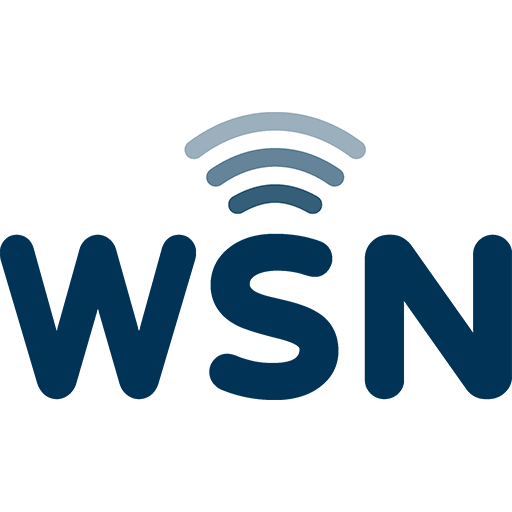First of all, what is VoIP? VoIP is a technology that allows for voice and multimedia sessions over the internet instead of the old Public Switched Telephone Network (PSTN). As VoIP gains traction, the number of VoIP providers also grows, and all of them will offer a unique set of services. This uniqueness it’s a must if you want to be better than your competitors and missteps come at a high price on your reputation. As a client, you require that your phone system is robust, has all the functionalities you need and can be scaled with your business, while keeping a competitive price.
When you are not satisfied with your current provider you might think of switching, which could become a waste of time if you end up with a provider that doesn’t fulfill your needs. To streamline that process we have made a list with the top 10 questions that your potential new provider should be able to respond
1 - What features and tools does your company offers?
Every provider will offer their own set of features and tools according to a determined client base. Some of them will include features such as call recording or voicemail to e-mail for free while others might offer it as an extra.
Another thing to take in account is if the features are self-managed or if the supplier has to configure them for you, also if this would incur in extra costs or it’s included in the base price. It’s up to you whether you prefer to set up the system yourself and ask for the extra support or to have it all set up by a team of experts that will ensure that everything runs well.
Also, it’s convenient to find out which tools and features the different providers offer, such as a user-friendly management portal, number porting, support availability, etc.
2 - Does your company offers mobile VoIP solutions
Nowadays, remote work has become part of our lives and thus, being able to move around with your office phone in your pocket is a must. Most VoIP providers will offer software-based VoIP services, also known as “softphone”. These apps can be installed on smartphones, tablets and computers or may be web based.
3 - When is the support department available?
This is one of the most asked questions, for the most part, the service will work flawlessly, but if it doesn’t you should be aware of the support options available. Another question would be having a dedicated account manager for service-related enquiries. Some important things are, the response time for a ticket, if support is in-house or outsourced and when it is available.
4 - What measures does the company take to ensure service quality and reliability?
There are several situations that can affect the reliability and security of a VoIP system, such as unforeseen weather conditions, DDoS attacks, data breaches and other factors. The provider should have measures in place in order to mitigate the possible effects of these situations such as redundancy in the systems or decentralization as well as monitoring. Nonetheless, it would be wise to ask about the number of outages and the length of them in the past 6 months.
5 - Can you keep your existing number?
Making sure you can keep your existing numbers is a must when signing up with a new provider, a service known as a Local Number Portability (LNP), you should ask if it incur in any charges and how long does it take for a number to be ported. The new provider might offer a test with a temporary phone number before doing the port if you are satisfied.
6 - Does the carrier supports E911?
It is a good idea to verify that E911 is supported so that you can call emergency services from wherever you are and how it operates. This is because VoIP handles 911 calls differently from PSTN.
7 - Is BYOD available?
BYOD means “Bring Your Own Device”, some providers might not support the phones you already have or they have their own range of phones. This could incur additional costs if you have to buy new devices or change them for supported ones that they might lend you. Some providers refer to BYOD as being able to use any device, softphone, VoIP adapter, IP PBX, etc as long as it’s SIP compatible.
8 - Does the company offers faxing services?
We normally refer to Points of Presence (PoPs) as the different data centers in which a provider has infrastructure, ideally these PoPs would be located in different parts of the world and with power and network redundancy. This helps reduce services interruptions or even not having any service interruptions if one data center fails since other PoP would take over instantly.
9 - How many PoPs does the company have and are they geographically distributed?
Points of Presence (PoPs) are often found in data centers that house servers, routers, network switches, multiplexers and other network interface equipment. PoPs should ideally be placed in different parts of the world and have several power and Internet backups. This architecture lowers service interruptions because if one data center fails, others may take over without creating any downtime for the user. Back-haul redundancy should also exist, thus ensuring that the supplier has several voice carriers for access to the Public Switched Telephone Network (PSTN).
10 - Is contract in place ,and if so, what are the terms?
Always read the fine print in the contract to see if it really fits your company’s needs. Inquire about contract length, contract termination procedures and early cancellation costs. Some contracts might have clauses preventing you from porting out from them. Some carriers will include a clause that requires them to inform customers of pricing or service changes.
Conclusion
Using VoIP has many advantages over PSTN, it’s more cost effective, it can be operated from almost any device with an internet connection, allows for better mobility, and many more. If you are thinking of migrating from PSTN to VoIP or simply migrating providers it is important to have an answer to these questions upfront to avoid any issues later.


